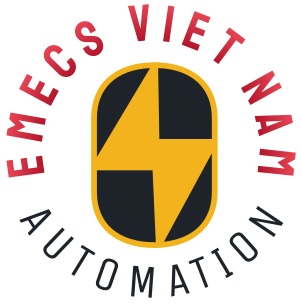Mô đun GE Discrete Input plc Modules IC694MDL241 24 VAC/VDC Input 16 Points
GE Discrete Input Modules IC694MDL241 24 VAC/VDC Input (16 Points)
Universal Development Environment:
The common software platform across all GE controllers, award-winning Proficy* Machine Edition* software provides the universal engineering development environment for programming, configuration and diagnostics for the entire PACSystems family.
• Programming tools such as tag-based programming, a library of reusable code and a test edit mode for improved online troubleshooting
• User-friendly environment that can increase design flexibility and improve engineering efficiency and productivity
Expansion Power Supplies
| IC694PWR321 | Power Supply, 120/240 VAC, 125 VDC, Standard, 30 Watts(Use with Expansion Base) |
| IC694PWR330 | Power Supply, 120/240 VAC, 125 VDC, High Capacity, 30 Watts |
| IC694PWR331 | Power Supply, 24 VDC, High Capacity, 30 Watts (Use with Expansion Base) |
| IC693ACC341 | Redundant Power Supply Base with 0.5 meter cable to connect to Power Supply Adapter Module (Use with Expansion Base) |
| IC693ACC350 | Redundant Power Supply Adapter (RPSA) Module; replaces power supply on expansion base and connects to a Redundant Power Supply Base. (Use with Expansion Base) |
Discrete Input Modules
| IC694MDL230 | 120 VAC Isolated Input (8 Points) |
| IC694MDL231 | 240 VAC Isolated Input (8 Points) |
| IC694MDL240 | 120 VAC Input (16 Points) |
| IC694MDL241 | 24 VAC/VDC Input (16 Points) |
| IC694MDL250 | 120 VAC Isolated Input (16 Points) |
| IC694MDL260 | 120 VAC Input (32 Points)** |
| IC694MDL632 | 125 VDC Input (8 Points) |
| IC694MDL634 | 24 VDC Input, Neg/Pos Logic (8 Points) |
| IC694MDL645 | 24 VDC Input, Neg/Pos Logic (16 Points) |
| IC694MDL646 | 24 VDC Input, Neg/Pos Logic, 1 msec Filter (16 Points) |
| IC694MDL654 | 5/12 VDC (TTL) Input, Neg/Pos Logic, (32 Points) |
| IC694MDL655 | 24 VDC Input, Neg/Pos Logic, 1 ms, (32 Points) |
| IC694MDL660 | 24 VDC Input (32 Points)** |
| IC694ACC300 | Input Simulator Module (8 Points) |
PACSystems RX3i Controller
The PACSystems* RX3i controller is an incredibly powerful Program-mable Automation Controller (PAC) in the innovative PACSystems family.
The RX3i features a single control engine and a universal programming environment to provide application portability across multiple hardware platforms and deliver a true conver- gence of control.
With integrated critical control plat-forms, logic, motion, HMI, process control and high availability based on our Reflective Memory technology, the RX3i provides the performance and flexibility to give you an advan-tage. No matter the challenges your applications bring, PACSystems RX3i lets you take control.
PACSystems RX3i Features:
• High-speed processor and patented technology for faster throughput without information bottlenecks
• Dual backplane bus support per module slot:
– High-speed, PCI-based for fast through put of new advanced I/O
– Serial backplane for easy migration of existing Series 90-30 I/O
• Multiple CPU offerings meeting various performance criteria up to and includ-ing an Intel ® 1 GHz CPU for advanced programming and performance with 64 Mbytes memory
• Memory for ladder logic documentation and machine documentation (Word, Excel, PDF, CAD and other files) in the controller to reduce downtime and improve troubleshooting
• Open communications support including Ethernet, GENIUS*, Profibus ™ , HART, DeviceNet ™ and serial
• Supports high density discrete I/O, univer-sal analog (TC, RTD, Strain Gauge, Voltage and Current configurable per channel), isolated analog, high-density analog,high-speed counter, and motion modules
• Expanded I/O offering with extended features for faster processing, advanced diagnostics and a variety of configurable interrupts
• Hot insertion for both new and migrated modules
PACSystems RX3i Benefits:
The innovative technology of the PACSystems RX3i enables users to:
• Address major engineering and business issues, such as higher productivity and tighter cost control
• Boost the overall performance of their automation systems
• Reduce engineering and commissioning costs
• Easily integrate new technology into installed base systems
• Significantly decrease concerns regarding short- and long-term migration and plat-form longevity


